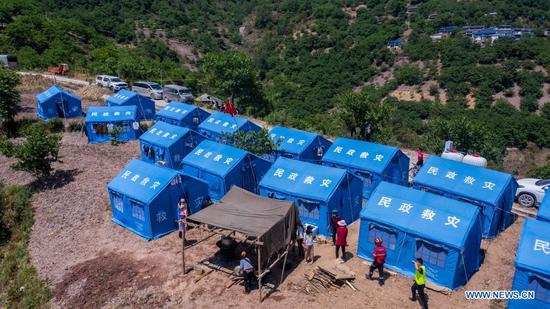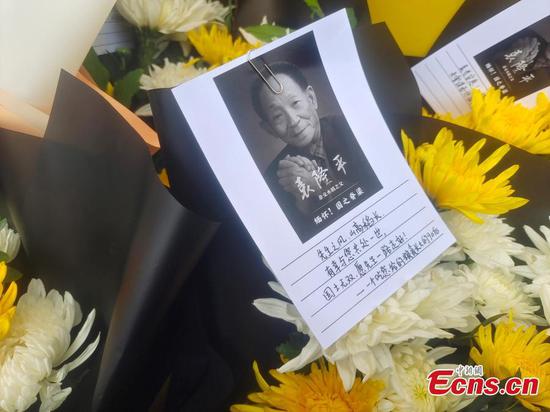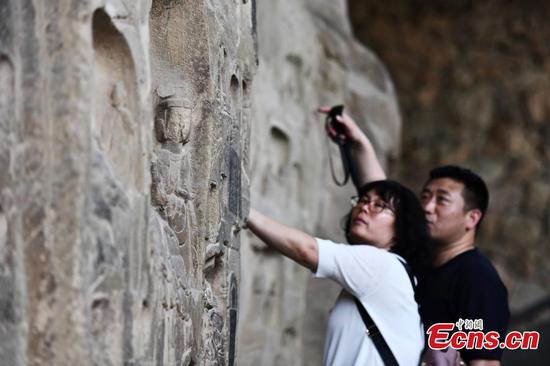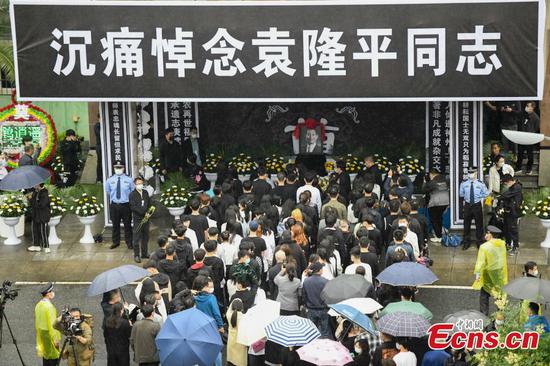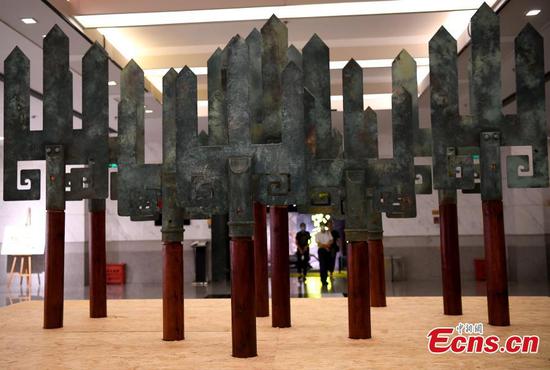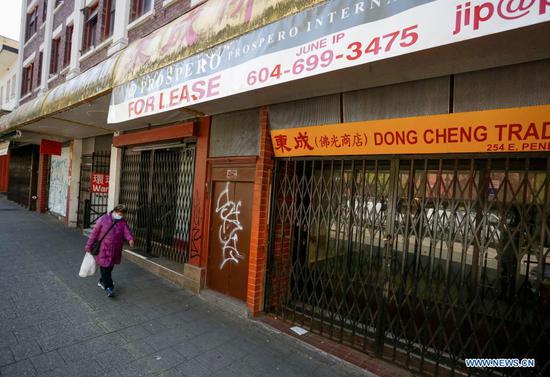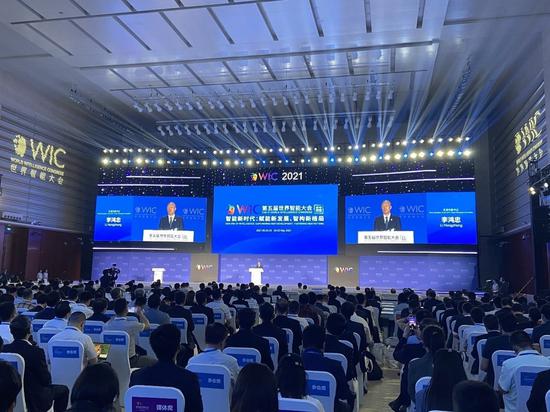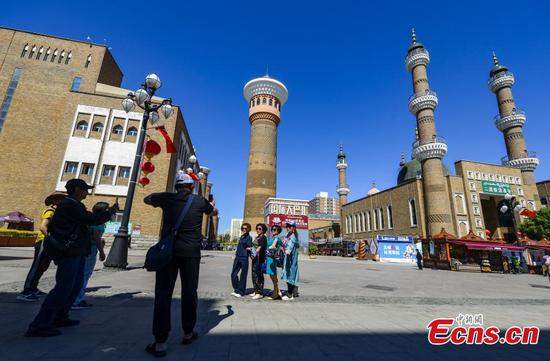
Workers set up a China Mobile 5G base station integrated with the Beidou system at a camp 6,500 meters above the sea level en route to the peak of Mount Qomolangma-also known as Mount Everest-in May last year. (Photo/Xinhua)
Zhang Wentao, a 29-year-old bank employee in Beijing, remembers clearly how difficult it was to get a train ticket to return home during the Spring Festival travel rush more than a decade ago.
He had to stand in a long line for hours outside a train station in the cold to get a ticket from Chongqing to his hometown of Nanchang, Jiangxi province.
But now with the emergence of mobile applications, all he needs to get tickets these days is his smartphone. With a few quick taps on a mobile app, he can now book tickets, make payments and even order food and have it delivered to his high-speed train seat.
"When I pass through ticket checks at stations, I no longer need to wait in long, meandering queues, because artificial intelligence-powered (monitors at the) gates can verify my face and let me pass through in three to five seconds," Zhang said.
Zhang's experience is becoming commonplace. Millions of Chinese consumers are enjoying more convenient lives due to the kaleidoscope of mobile applications that have emerged in the past few years on the basis of a sound network infrastructure.
One major contributor to such progress is China Mobile, the nation's largest telecom operator. As of March 31, the Beijing-based company had almost 940 million mobile subscribers. Mobile telecom service was first enabled on the Chinese mainland in 1987 to help people in Guangdong province communicate with those in Hong Kong and Macao.
Now China Mobile is scrambling to establish a beachhead in the 5G era, in which almost everything can be connected to the internet. That ambition came after it had built the world's largest 4G network.
Yang Jie, chairman of China Mobile, said the company plans to achieve sound 5G coverage in cities, counties and key towns this year, after its 5G services already became available in all cities at prefecture-level and above on the Chinese mainland in 2020.
Last year, the company opened 385,000 5G base stations and reached its annual 5G target ahead of schedule.
Yang said China Mobile will invest several hundred billion yuan in 5G-related industries through equity participation and mergers and acquisitions over the next five years to build a robust 5G ecosystem and help widen the use of 5G in more sectors.
Such eagerness and determination to experiment with new things is well demonstrated by China Mobile's development in the past decades. It was the first Chinese mainland telecom player to get listed on overseas trading platforms, going public in Hong Kong and New York in 1997.
China Mobile was also among the first batch of State-owned companies to hire popular stars to be brand ambassadors. In the 2000s, it courted Jay Chou to represent its new brand M-zone to expand its appeal among young people.
Wu Jichuan, 83, a previous head of the former Ministry of Posts and Telecommunications, said earlier that one of the biggest contributions of China's telecom industry is that it laid down a sound digital infrastructure for companies and consumers to access fast internet networks at affordable prices.
They laid the foundation for China's kaleidoscope of mobile applications and thriving digital economy. More importantly, they can help fuel the integration of digital and real economies in the 5G era to inject new vitality into China's economy, Wu said.











